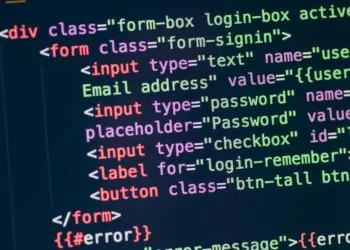In a world obsessed with the latest gadgets and AI breakthroughs, it’s tempting to believe technology will soon take over every human role. But let’s be honest—no robot can match the quirky creativity, emotional intelligence, and gut instincts that make people truly irreplaceable. Technology might crunch numbers faster than any human, but it can’t crack a joke, read a room, or inspire a team like a real person can.
RoarTechMental dives into why humans will always hold the upper hand despite the tech takeover hype. From problem-solving to empathy, the human touch remains unmatched. So before you hand over your job to a machine, consider what’s lost when the heart and soul exit the equation.
Understanding the Limitations of Technology
Technology performs many tasks efficiently yet lacks qualities that make humans indispensable. Addressing these limitations clarifies why technology cannot fully replace humans.
The Role of Human Creativity and Intuition
Creativity involves generating original ideas, which technology cannot consistently achieve. Humans use intuition to make decisions without explicit data, drawing from experience and subconscious insights. Innovation depends on combining knowledge in novel ways, a process machines cannot replicate authentically. Complex problem-solving often requires thinking beyond algorithmic boundaries. For instance, artists and designers produce work infused with personal vision, something AI tools only mimic superficially. Intuition enables leaders to navigate uncertainty when data is incomplete or ambiguous. These uniquely human skills ensure tasks needing imagination and gut feeling remain outside technology’s reach.
Emotional Intelligence Cannot Be Replicated
Emotional intelligence includes recognizing and managing one’s feelings and empathizing with others. While AI detects patterns in communication, it does not truly understand or feel emotions. Effective interpersonal interactions depend on sensing subtle cues like tone and body language, skills humans develop over time. Trust and rapport build through genuine emotional responses, which machines cannot provide. In fields like counseling or customer service, emotional intelligence proves critical for resolving conflicts and providing comfort. Empathy fuels moral judgment and ethical decision-making beyond programmed responses. Technology’s lack of authentic emotional connection limits its role in scenarios requiring human compassion and understanding.
The Importance of Human Judgment and Ethics

Human judgment and ethics remain crucial in technology-driven environments. Machines execute programmed tasks without moral reflection or nuanced decision-making.
Complex Decision Making in Unpredictable Situations
Humans excel in complex decision making when situations shift unexpectedly. Their ability to analyze incomplete information and adapt strategies surpasses algorithmic logic. Machines can process vast data sets rapidly, but unpredictable events require human intuition and experience. For instance, emergency responders assess dynamic scenarios in real-time, deciding actions that algorithms cannot predefine. While AI assists in data interpretation, final judgments in volatile contexts rely on human reasoning to account for subtle cues and changing variables.
Ethical Considerations Beyond Algorithms
Ethical judgment involves understanding societal values beyond coded instructions. Humans interpret fairness, justice, and accountability in ways machines cannot replicate. Algorithms follow predetermined rules and lack conscience or empathy, which leads to blind spots in ethical dilemmas. For example, decisions involving privacy, discrimination, or moral responsibility require human oversight. Ethical considerations demand awareness of consequences and contextual sensitivity, traits embedded in human cognition but absent from AI systems. Hence, ethical reasoning continues to necessitate the human perspective to ensure technology benefits society responsibly.
The Social and Emotional Connection Humans Provide
Humans deliver social and emotional connections that technology cannot replicate. These connections form the foundation of meaningful interactions and trust in personal and professional environments.
Building Trust and Empathy in Relationships
Trust grows from genuine understanding, emotional presence, and shared experiences. Humans interpret body language, tone, and subtle emotional cues in ways machines cannot, enabling deeper empathy. Relationships thrive on this emotional intelligence, strengthening bonds in ways AI lacks. For example, therapists build trust by responding sensitively to client emotions, a dynamic technology cannot reproduce. Mutual trust depends on feelings of safety and recognition, created through human connection. Without this trust, interactions feel transactional and superficial, highlighting why humans remain essential in roles that require empathy and sensitivity.
Why Technology Falls Short in Human Interaction
Technology processes data but cannot understand feelings or context the way humans do. Emotional subtleties, such as sarcasm or comfort, elude AI, limiting its ability to respond appropriately. Machines execute programmed responses without awareness or emotional insight, missing the nuances of genuine communication. Human interaction involves spontaneity and adaptation based on emotional feedback, elements technology cannot mimic authentically. For instance, customer service representatives adjust tone and approach based on client mood, a skill absent in automated systems. This shortfall proves crucial in fields like counseling, negotiation, and leadership, where emotional connection guides effective communication.
The Unique Value of Human Experience
Human experience delivers unmatched value in technology’s evolving landscape. Its distinct features enable capabilities machines cannot fully replicate.
Adaptability and Learning from Context
Humans adapt quickly to changing circumstances, adjusting decisions based on new information. They learn from subtle environmental cues and social context that machines often miss. Experience allows them to recognize patterns beyond algorithms’ reach, especially in unpredictable situations. Real-time judgment depends on this adaptability, crucial in complex tasks like crisis management or negotiation. Unlike rigid programming, humans modify their approach dynamically. This continuous contextual learning helps solve problems creatively and effectively, preserving roles where flexibility outperforms automation.
The Power of Cultural and Personal Perspectives
Personal background influences how individuals process information and interact with others. Cultural experiences shape values, communication styles, and problem-solving methods uniquely for each person. Technology struggles to interpret these nuanced perspectives accurately. Human insight roots decisions in empathy and relevance to specific communities or individuals. Understanding cultural context ensures sensitivity and effectiveness, vital in sectors like education, healthcare, and diplomacy. Incorporating diverse viewpoints fosters innovation and inclusivity that technology alone cannot achieve.
Conclusion
Technology continues to advance rapidly but it simply can’t replicate the depth of human creativity, empathy, and ethical judgment. The nuanced understanding and emotional intelligence humans bring to complex situations remain unmatched by any machine.
Human experience and adaptability ensure that people will always play a vital role in decision-making and relationship-building. While technology enhances many aspects of life, it serves best as a tool that complements rather than replaces human insight.
Ultimately, the human touch is essential for fostering trust, innovation, and responsible progress in a world increasingly shaped by technology.










